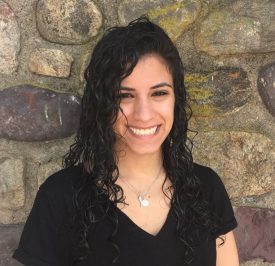Trainee Spotlight: Jenna Todero’s excitement for research keeps her engaged, despite challenges

Jenna Todero, UNC SRP Trainee in Project 1
UNC Superfund Research Program (SRP) trainee Jenna Todero’s passion for her research has helped her overcome challenges and keeps her driving to learn more. Jenna is studying arsenic-induced metabolic dysfunction and associated sex effects with Dr. Praveen Sethupathy at Cornell University as a trainee in Project 1. Any doctoral student will tell you that pursuing a PhD is a difficult and rigorous journey, but Jenna has had to face more challenges than many.
In 2019, Jenna decided to leave a career working in biotech to pursue a PhD. With tension between business and scientific advancement in the biotech industry, she hopes that a PhD would help give her more authority as a scientist in her future career. A family history of type 1 diabetes inspired Jenna to join a lab focused on studying diabetes.
Her first year at Cornell was interrupted by the COVID-19 pandemic. While COVID created challenges for students across the globe, it posed special challenges for graduate students whose research required in-person duties.
As a lab researcher, Jenna was required to come into the lab at times when no other researchers were there, meaning she was unable to receive in-person training on general lab procedures as well as the specific protocols she needed to follow. Luckily for Jenna, her prior lab experience and understanding of standard operating procedures turned out to be quite helpful.
In another setback, Jenna’s first advisor left Cornell before her qualifying exams. However, she was able to join Dr. Sethupathy’s lab and credits her success to Dr. Sethupathy as a “fantastic mentor.”
“I came in with very little knowledge about genomics, microRNAs and bioinformatics and now I feel very comfortable with those concepts,” she remarked. “I like the data science aspect, which I didn’t expect–there’s always something new to find.”
Although Jenna is in a different location from most UNC SRP trainees, she says that the UNC SRP collaboration has given her a unique edge among her peers at Cornell. She highlighted the access to resources such as the novel humanized mouse model developed at UNC to study arsenic-associated metabolic disease as one important benefit.
“Working on a project like this opened a lot of new doors for me,” says Todero.
After graduation, Todero hopes to work for a government lab studying environmental toxins and diseases.
